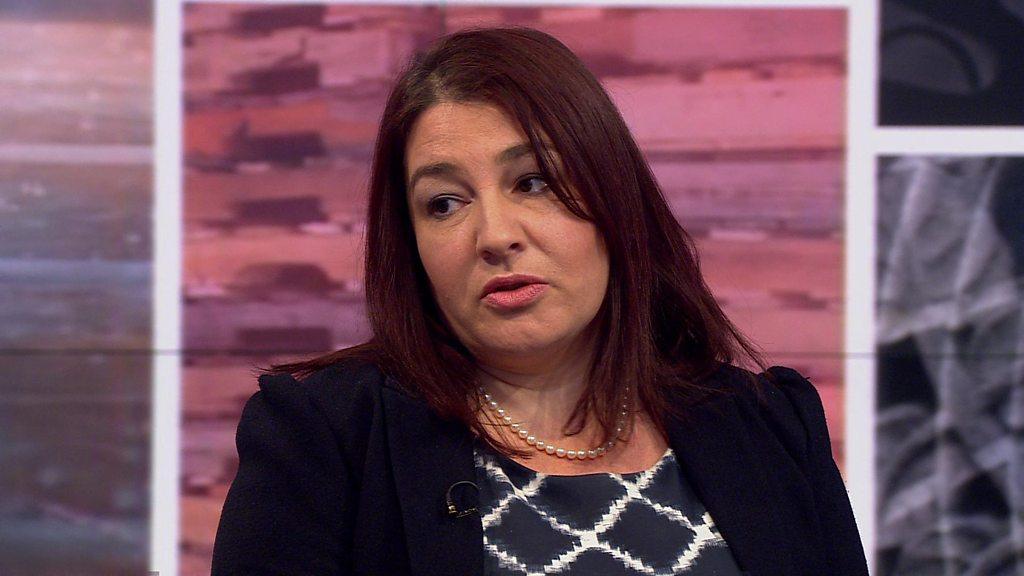How will the Haiti scandal affect Oxfam?
- Published
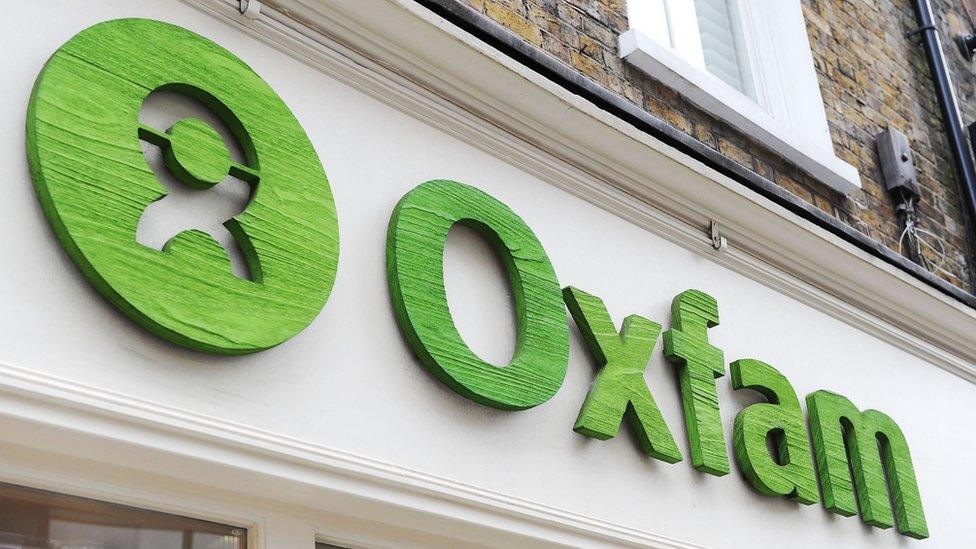
Accusations Oxfam concealed findings its staff used prostitutes while delivering aid in Haiti in 2011 have led members of the public to admit they are now doubtful about donating to any charity.
The British organisation's deputy chief executive Penny Lawrence has resigned in the wake of the revelations but further action is required to restore the faith of donors.
"Absolutely - to any charity," says IT security analyst Anil, 40, when asked if he has been put off donating.
"I feel bad saying that but I don't feel confident in what goes on behind the scenes.
"I know the majority of people who work there are very good at what they do but the management is shocking. That [recent allegations] is shocking."
The extent of the damage to public faith and donations is yet to be felt but for retail professional James, 52, the claims only add to his frustrations with the third sector.
"My wife has said she definitely will not give money to Oxfam now," he says. "This has dented public opinion in a very detrimental way."
He adds: "I think there are some issues with charities anyway. I have a bit of a problem, for example, with how much they pay their chief executives.
"I'm concerned about how much of the money I actually give makes it to the causes."
Michelle Russell, from Charity Commission, says the regulator is "very angry"
"It's an upsetting case," Daniel Fluskey, from the Institute of Fundraising, told BBC Radio 5 live.
"This will have an impact on public trust and confidence in Oxfam.
"I know they've taken a number of steps to get in touch with all of their supporters to tell them what they've done and that's going to have to continue."
Last year, Oxfam had a total income of £409m - of which £176m came from the UK government and other public authorities.
Of the rest, £108m came from donations and legacies and £91m from sales in its shops.
Other international aid organisations have been quick to distance themselves from the story.
The British Red Cross has reassured its supporters it has "a zero tolerance policy to any form of sexual harassment and misconduct".
It said there had been "no dismissals... for reasons relating to sexual harassment, abuse or paedophilia in at least the past five years".
Allocation of money
For some members of the public, Oxfam's mistakes reflect badly on it alone.
Account manager Laura, 39, insists the accusations would have no impact on her decision to donate to other organisations.
"No, not at all," she says. "Definitely not."
"I only really select a few charities to donate to and Oxfam isn't one of them," she adds.
"If it was a different charity then yes it would [affect my decision to donate to them]."
Aid organisations must now be seen to be making real strides to improve transparency as they bid restore the public's faith.
"I think all charities now need to subscribe to some sort of governance and compliance and it needs to be available to the public whenever they want to see it," Anil adds.
"Who gets what, what bonuses are there, where is the money allocated to?
"There should be internal auditing by an external company to see exactly where the money is going and what it is being spent on."
Penny Mordaunt: 'They did absolutely the wrong thing'
The concern for many in the sector now is about the long-term effects of the story, and experts are warning against complacency.
Conservative MP Paul Scully, who sits on the International Development Committee, said the scandal could have wider implications for international aid.
"The long term concern about this is the risk of people not wanting to donate to charities that do amazing work across the world and also to those people that it becomes another argument about why not to spend money on international development.
"There is a disincentive in the system [for charities to be more transparent] because charities are competing against one another for donations and so that means there is the fear that if something tarnishes their reputation it may affect their donations."
Mr Fluskey said charities need to think about public trust and confidence "in all areas" of their work.
He said organisations need to make sure they are "open and transparent" and "working to the right values".
"We know that people care about causes and that they do want to give support to charities - we can't take that for granted, but we believe the British public will continue to support charities where they see them working according to the high standards they expect."
- Published12 February 2018
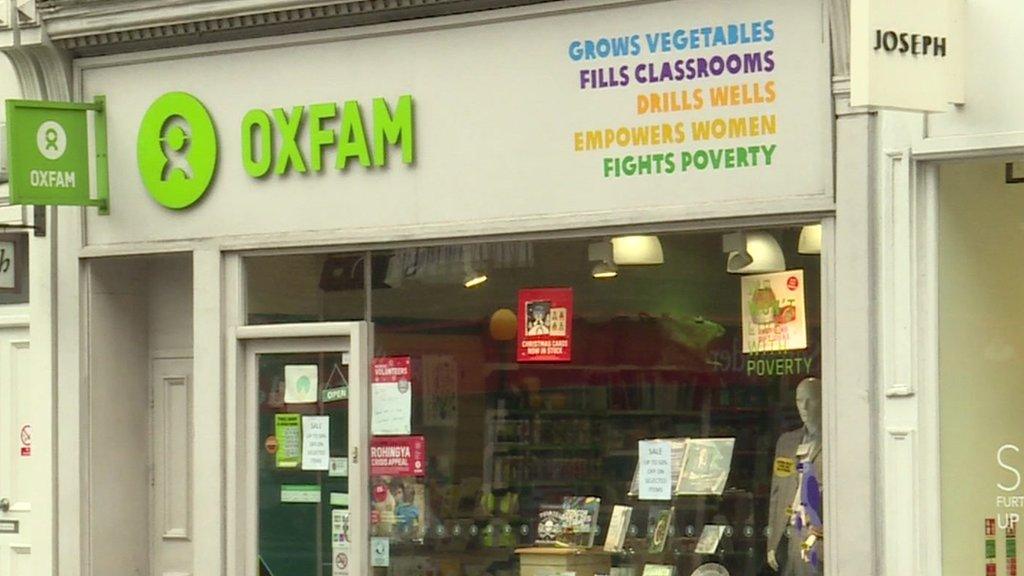
- Published11 February 2018
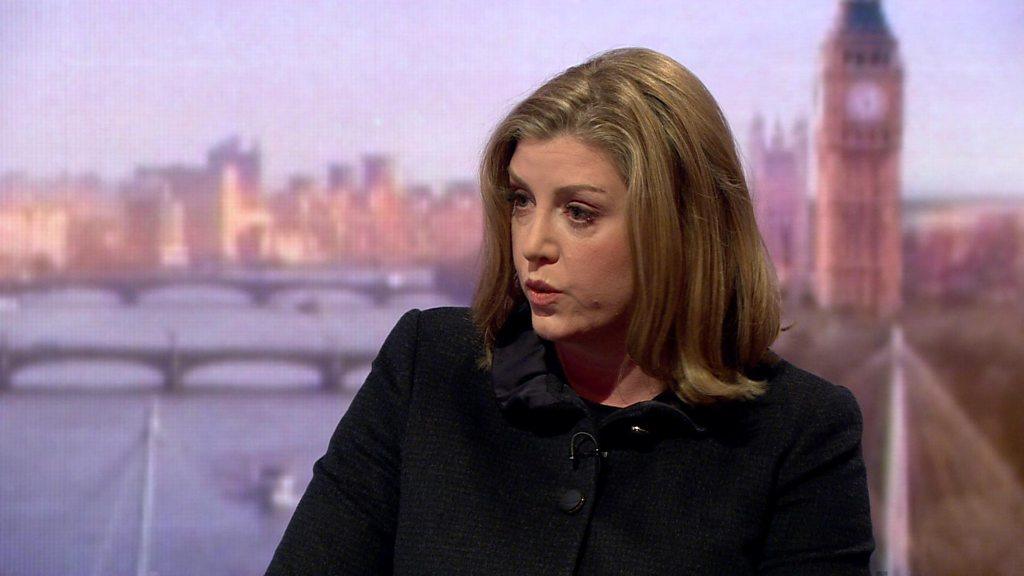
- Published12 February 2018
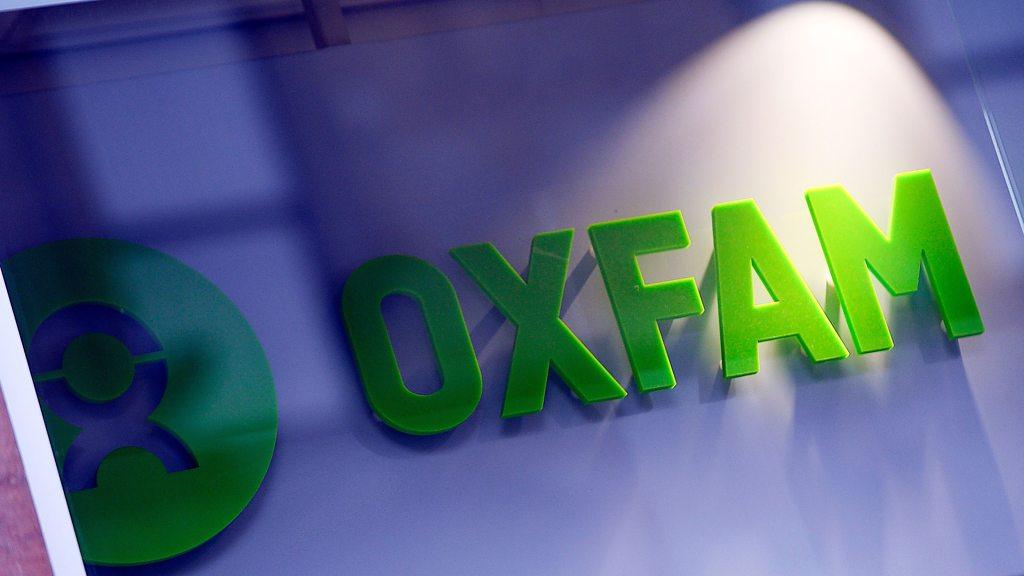
- Published12 February 2018
